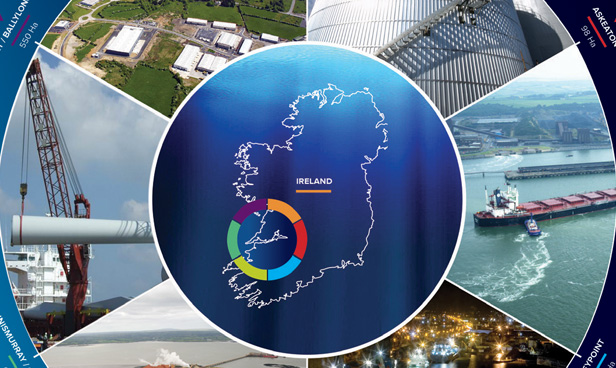
Solar energy in Ireland
25th November 2019
A renewable energy growth engine
25th November 2019Climate change and financial stability: Are we facing into a new financial crisis?

While there has been significant commentary over the past 12 months in relation to the climate emergency including increased awareness of just how real it is, there has been much less debate about the consequences of the emergency for the stability of our financial system, writes Mike Hayes, Global Head of Renewables, KPMG.
As we know only too well from recent experience during the property crash, central banks and financial regulators have a critical responsibility to understand the risks to the financial system and to take appropriate action where necessary. It is now beyond doubt that the climate emergency threatens the overall stability of our financial system. In this article, I explore what exactly these risks entail and how the financial services industry is responding.
The risks can be divided into two key areas — physical risks and transition risks:
Physical risks
Physical risks are those that arise from climate and weather-related events such as droughts, floods, storms and sea level rises. These risks result in damage to infrastructure, disruption of supply chains, and adverse impact on food production amongst many others.
These physical risks can potentially result in large financial losses, particularly for financial institutions providing funding and insurance solutions to those companies that are impacted. For example, many of these losses may be uninsured thereby impacting on the recovery of loans. For many others, this will see a significant rise in insurance premiums. Also, for insurance companies, the issue is the extent of the potential unrecognised liabilities they are carrying in respect of climate change exposures.
Transition risks
Transition risk is the financial risk which results from the move towards a lower carbon economy. Changes in climate policy, technology, or market sentiment could result in a reassessment of the current market value of many different assets held in portfolios throughout the world. The speed at which this re-pricing will occur is unknown but it is clear that it will happen at some point.
Impact on financial market participants
All of these risk areas should represent a critical concern for the following participants in the capital markets:
• Investors and asset managers:
It is critical that investors and asset managers fully assess the level of risk in their existing portfolios and ensure that climate risk is appropriately taken into account for all future investment decisions.
• Banks and other lending institutions:
In addition to all the existing risks, banks will now have to consider the resilience and adaptability of borrowers to the climate emergency in order to avoid the risk of bad loans arising in the future. This will require such institutions to develop the appropriate level of expertise to help make informed lending decisions.
• Insurance companies:
Insurance companies will need to recognise that the nature of the liabilities they are carrying will need to be reconsidered such that climate risk is correctly factored into the determination of liability exposures.
Response from the financial services industry
Central banks, regulators and the wider financial services industry are not standing idly by as this risk of financial instability increases. I highlight below some of the important measures that are being undertaken currently:
• EU Sustainable Finance Initiative:
The EU has undertaken a substantial body of work to give investors sufficient disclosure and transparency to help them identify companies that can be regarded as sustainable over the medium to long term. To achieve this, the EU has commenced work on a taxonomy to help investors understand economic activity that can be regarded as green and sustainable.
• Central banks:
42 central banks from around the world have formed a new organisation called Network for Greening the Financial System (NGFS). This initiative is designed to ensure that prudential regulators and supervisors around the world require organisations within their control to adopt appropriate policies and procedures in order to identify and measure climate risk.
“It is critical that investors and asset managers fully assess the level of risk in their existing portfolios and ensure that climate risk is appropriately taken into account for all future investment decisions.”
• Green finance:
Various initiatives are underway around the world to create mechanisms and structures to enable investors to invest in green related activities. The best example of this is the emergence of green bonds where investors can invest in activities that are certified as green. Ireland has taken a leading role in the green bond market as a result of recent issues by NTMA and the ESB and we expect many more to follow.
• Climate related financial disclosures (TCFD):
This is a voluntary measure encouraging companies to make reliable and clear disclosures in their financial statements on climate related financial risks in order to provide information to lenders, insurers, investors and other stakeholders. This is a really important initiative which I believe will become mandatory in the future.
It is also important to point out that the climate emergency represents an incredible opportunity for those investors, banks and insurance companies. There are various estimates about the level of expenditure that will be required to move to a low or zero carbon economy by 2030, but most estimates would suggest that it would be somewhere between US$70-90 trillion. This represents a “once in a lifetime opportunity” for investors who understand what a sustainable future really looks like.
Conclusion
I hope it will be obvious to the readers just how important the issue of financial stability is in the context of climate change. However, the reality is that while a lot of good work is now underway, we can expect more initiatives, more regulation and more focus on this area in the future. In an Irish context, I expect that this agenda will feature in future budgets and as part of wider government policy.
T: +353 (0)1 410 1656
E: michael.hayes@kpmg.ie
W: www.kpmg.ie

